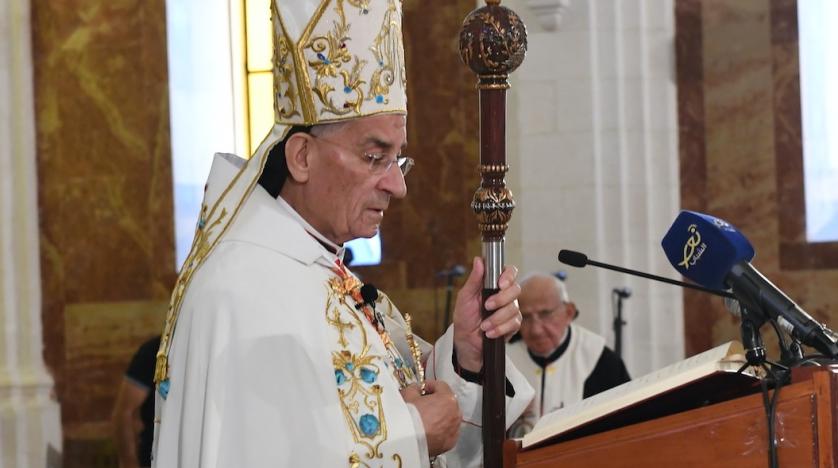
BEIRUT — Maronite Patriarch Bechara al-Rai warned on Sunday from Rome that Parliament “cannot continue to deliberately delay and manipulate the election of a head of state.” Rai’s remarks come as the country is experiencing its first dual executive power vacuum, with no president and without a fully empowered cabinet. Rai spoke on Sunday during a festive Mass in the Church of Saint Maron in the Pontifical Maronite Institute in Rome. He described the country’s independence day, which falls on Nov. 22, as a “sad day,” adding that “in the absence of a president, the state disintegrates, the internal unity is shaken up, the separation of powers is disrupted, chaos spreads, and the political, economic, social and living crises worsen, as is happening.”
Parliamentary quorum
The head of the Maronite church criticized in his Sunday homily the decision by Parliament Speaker Nabih Berri to conclude parliamentary sessions dedicated to electing a new president after the first round of vote when some parties’ MPs leave, slashing the quorum — two-thirds of MPs — Berri argues is required to continue the session. MPs failed for the seventh time on Thursday to elect a successor to Michel Aoun, whose term as president ended on Oct. 31. Each time, MPs from Hezbollah, the Amal Movement, the Free Patriotic Movement and their allies have left Parliament either ahead of or following a first round vote, torpedoing quorum, and disabling the session from continuing. “Regardless of the custom that states that a quorum of two-thirds of the members of the House of Representatives is required in the session to elect the President of the Republic, we must not forget the legal principle that says: ‘There is no custom contrary to the constitution,” Rai said. Rai claimed that “Article 49 of the constitution stipulates the election of the president by two-thirds of the votes in the first session, and in the next and subsequent sessions by absolute majority (half plus one),” questioning the reason behind “clos[ing] the first session after each poll and disabl[ing] the quorum in the next session, contrary to Article 55 of the internal rules of the Parliament.”
Berri considers that each new session resets the voting process, meaning that even if a first round vote took place at the previous session, the legislature will again begin with a first round vote. There is some debate that this approach contradicts the constitution, according to which, a two-thirds majority is needed to elect a president in the first round of voting, while only a simple majority is required in all subsequent rounds. Some contend that first found should be considered as the vote Parliament held on Sept. 29, which returned no conclusive results. Rai stressed that “the Parliament cannot continue to deliberately delay and manipulate the election of a head of state who ensures the continuity of the entity and maintains order.” Also on Sunday, the Greek Orthodox Metropolitan of Beirut, Elias Audi, described as “a lie” the consensus some political leaders are calling for ahead of the election of a new president. Audi called on Parliament to hold an open session until it elects a new head of state. “Don’t they know that they have to hold an open parliamentary session, in which the rounds of voting follow each other and the candidates compete in a clear manner?” Audi asked. “Obstruction is a crime against the homeland and against the voters,” he went on, accusing parliamentarians who fail to perform their constitutional duty of “betraying the trust of the people.”
Friendly countries
Rai doubted that Lebanon can wait for other countries to stretch out a helping hand in the presidential election conundrum. “Lebanon cannot wait for others to elect its president, especially since what is happening in the region does not inevitably promise solutions to existing problems,” Rai said. “Rather, the danger remains of the emergence of new wars that would complicate the Lebanese solution. Until now, we hear about contacts and initiatives from this or that country, but we do not see results. The historical deals in Lebanon came as a result of Lebanese initiatives, even if they were friendly countries that helped us achieve them.” Rai also urged MPs to “elect a president who, after his election, is able to unite the Lebanese around him and the state, and adhere to the constitution, legitimacy, the Lebanese laws and international decisions, and prevent any party from encroaching on them.”



